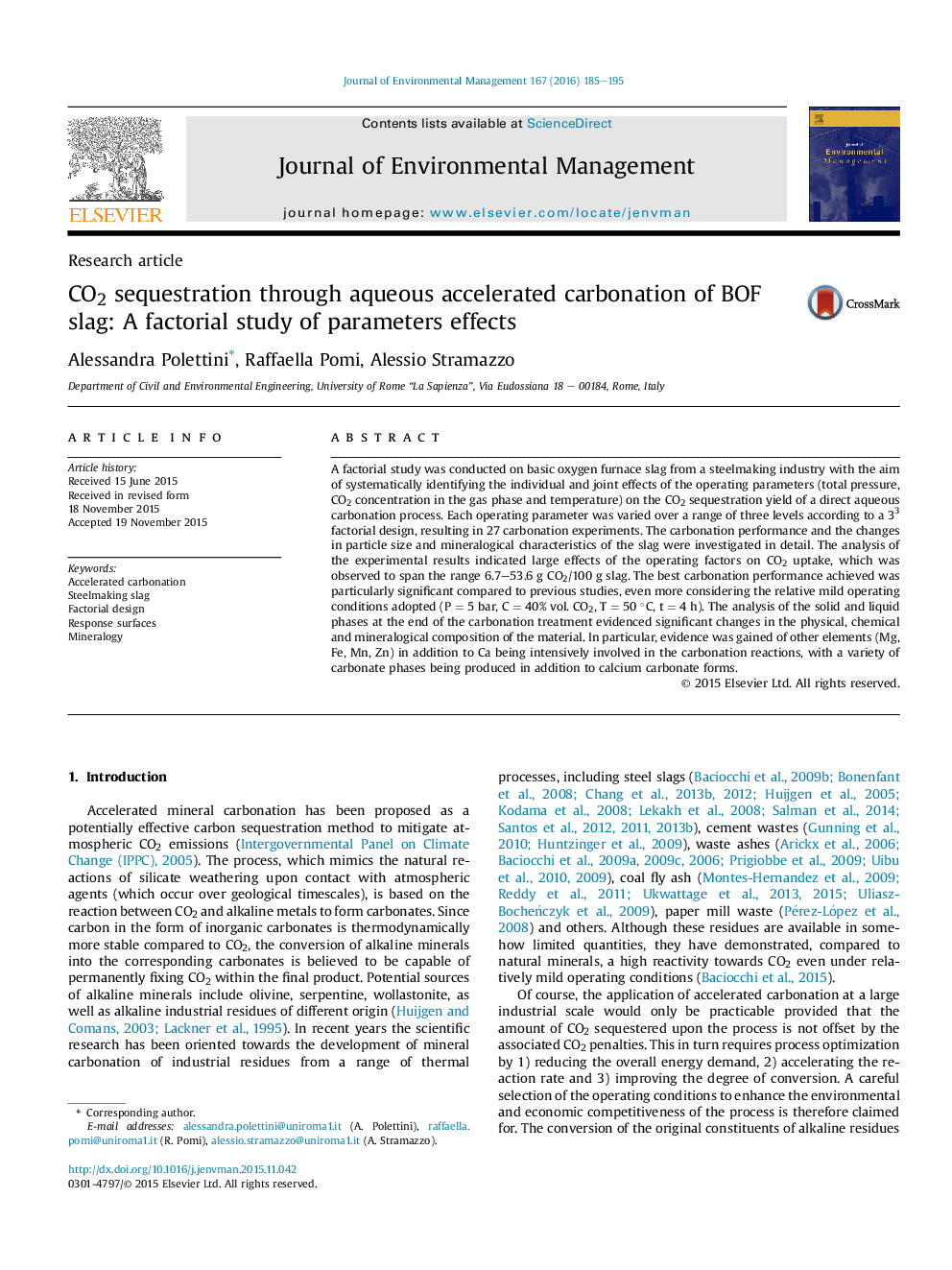| Article ID | Journal | Published Year | Pages | File Type |
|---|---|---|---|---|
| 7481296 | Journal of Environmental Management | 2016 | 11 Pages |
Abstract
A factorial study was conducted on basic oxygen furnace slag from a steelmaking industry with the aim of systematically identifying the individual and joint effects of the operating parameters (total pressure, CO2 concentration in the gas phase and temperature) on the CO2 sequestration yield of a direct aqueous carbonation process. Each operating parameter was varied over a range of three levels according to a 33 factorial design, resulting in 27 carbonation experiments. The carbonation performance and the changes in particle size and mineralogical characteristics of the slag were investigated in detail. The analysis of the experimental results indicated large effects of the operating factors on CO2 uptake, which was observed to span the range 6.7-53.6 g CO2/100 g slag. The best carbonation performance achieved was particularly significant compared to previous studies, even more considering the relative mild operating conditions adopted (P = 5 bar, C = 40% vol. CO2, T = 50 °C, t = 4 h). The analysis of the solid and liquid phases at the end of the carbonation treatment evidenced significant changes in the physical, chemical and mineralogical composition of the material. In particular, evidence was gained of other elements (Mg, Fe, Mn, Zn) in addition to Ca being intensively involved in the carbonation reactions, with a variety of carbonate phases being produced in addition to calcium carbonate forms.
Related Topics
Physical Sciences and Engineering
Energy
Renewable Energy, Sustainability and the Environment
Authors
Alessandra Polettini, Raffaella Pomi, Alessio Stramazzo,
